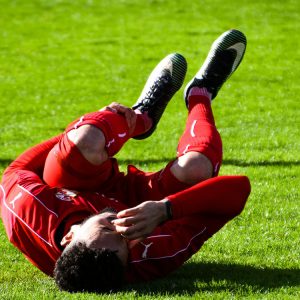A concussion is considered a subset of a mild traumatic brain injury. Research has found that a second hit to the brain before it has had adequate time to heal may result in worsening of metabolic changes within the cells of the brain. Research has also found that an early return to increased cognitive or physical load may cause the brain to be vulnerable to prolonged dysfunctions. Short-term risks for premature return to play include decreased reaction time and an increased risk of a repeat concussion or injury. Long-term effects include secondary neurological conditions. There is currently no validated return to play guidelines for concussions. It is found that athlete diagnosed with a concussion should never return the same day or should return to sport if they are still symptomatic. It is concluded that treating concussions requires a multifaceted approach. It is important for the athlete to be honest with their symptoms and for all parties involved to be able to recognize signs and symptoms of the injury. It is then recommended that a healthcare provider that is familiar with the athlete and knowledgeable in recognition and evaluation of concussions be used to properly diagnose a concussion. To see full article and a list of signs and symptoms of a concussion

